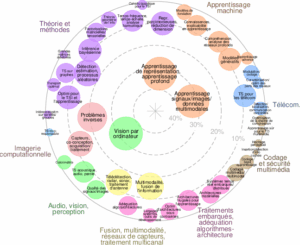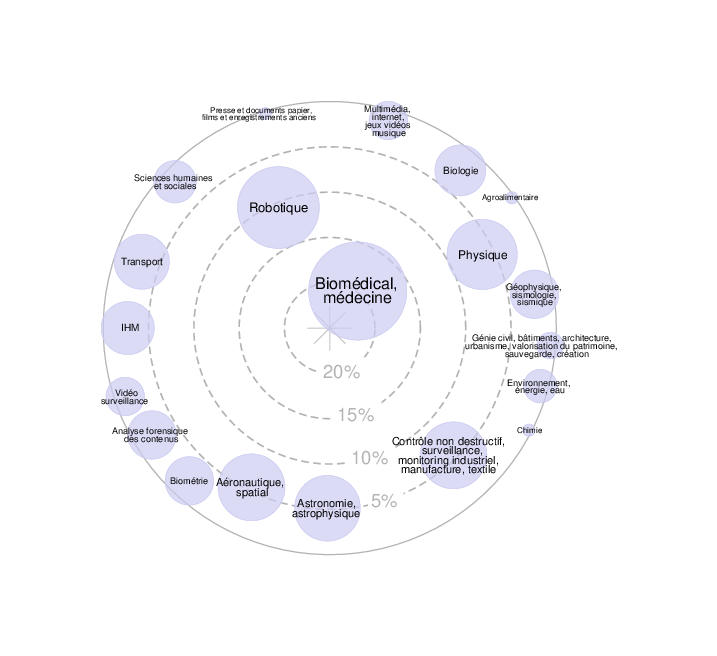Advisors: Olivier Alata (Professor) and Jordan Patracone (Associate Professor)
Host laboratory: Hubert Curien Lab, UMR CNRS 5516, Saint-Etienne, France
Starting date: Spring 2026 – Application deadline : 28th of November, 2025
Keywords: Koopman operator; Non-autonomous dynamical systems; Change-point detection;
Deep learning; Anomaly detection.
Context:
This internship is part of the GreenAI project at the Hubert Curien Laboratory. The focus is on studying time series as trajectories of non-autonomous dynamical systems, with the aim of detecting regime changes and distinguishing normal from abnormal behaviors. To tackle this challenge, operator-theoretic approaches have gained attention. In particular, the Koopman operator framework has recently emerged as a powerful tool, offering a linear perspective on nonlinear dynamics [1].
Recent work at the laboratory introduced the Conformal Online Learning of Koopman embeddings (COLoKe) [2], which adaptively learns Koopman-invariant representations from streaming data. By combining deep feature learning with multi-step prediction consistency in the lifted space, and triggering updates only when prediction errors exceed conformal thresholds, COLoKe achieves accurate online adaptation while avoiding unnecessary computation.
While COLoKe has demonstrated strong results for autonomous systems, many real-world processes are inherently non-autonomous, influenced by time-varying external factors. Extending Koopman-based online learning to such systems remains an open challenge and will be the focus of this internship. The candidate will explore deep learning approaches that integrate conformal prediction with Koopman operator theory to detect and characterize regime changes in non-autonomous settings.
Mission:
The candidate will build upon the COLoKe framework to design novel methods capable of handling non-autonomous dynamical systems. This includes: 1) Designing and running experiments on synthetic benchmarks to validate theoretical and methodological extensions; 2) Implementing change-point detection and anomaly detection strategies in the Koopman setting; and 3) Applying the developed methods to real-world datasets, with two envisioned application domains :
- Road traffic monitoring (GreenAI project). The goal is to create autonomous smart sensors with a low ecological footprint for road surveillance. Online learning strategies will be particularly important to achieve efficient anomaly detection in a streaming context.
- Early prognosis of neurodevelopmental complications in premature children. The aim is to create an innovative prognosis tool based on the automated analysis of spontaneous motor activity. To this aim, trajectories of keypoints (wrists, ankles, …) will have to be semantically partitioned in order to study sequences of characteristic movements. Database containing 129 premature children followed up to the age of two years and 282 annotated videos with corresponding 3D pose data is available.
References
[1] Steven L. Brunton, Marko Budiˇsi´c, Eurika Kaiser, and J. Nathan Kutz. Modern koopman theory
for dynamical systems, 2021.
[2] Ben Gao, Jordan Patracone, Stephane Chretien, and Olivier Alata. Conformal online learning
of deep koopman linear embeddings. In Advances in Neural Information Processing Systems
(NeurIPS), 2025.
Candidate profile:
- Final year master or engineering school student in computer science, applied mathematics, or
related fields. - Background in time series analysis, dynamical systems, or machine learning.
- Good programming skills in Python (PyTorch is a plus).
- Experience in experiments designing.
Application: Candidates must send the following documents to both jordan.patracone@univ-st-etienne.fr and olivier.alata@univ-st-etienne.fr as soon as possible:
- Cover letter explaining their motivation and relevant skills,
- Curriculum Vitae,
- Transcript of Bachelor and Master/Engineering school grades,
- Any additional documents if any.
Feel free to contact us beforehand for any further pieces of information !
Funding: The selected candidate will obtain a 5/6 months funding. The salary is provided as
intership allowance (4.35 €/hour, for a 35h week around 152€, 4 weeks 609 €).
Host laboratory: Created in 2006, the Hubert Curien laboratory is a joint research unit (UMR
5516) of the Jean Monnet University (Saint-Etienne), the French National Research Centre (CNRS), ´
and the Institut d’Optique Graduate School. It is composed of about 90 researchers, professors and
assistant professors, 20 engineers and administrative staff, and 130 PhD and post-PhD students.





